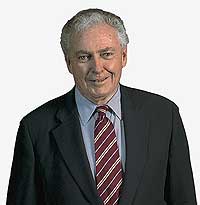Page content
Message from the President
Frequent Recurrence to Fundamental Principles
In 1776, at the Capitol on the east end of Duke of Gloucester Street, “the representatives of the good people of Virginia, assembled in full and free convention,” began with one another, and with posterity, a dialogue about democracy. That conversation is still pursued in Williamsburg, and now, through the magic of the microchip, much of the world can participate.
More than 230 years ago, such men as Patrick Henry, George Wythe, James Madison, and George Mason came here to debate, craft, and commit to writing a republican constitution, the first of its kind in North America. They appended a declaration of rights that said, among other things: “That no free government, or the blessings of liberty, can be preserved to any people but by a firm adherence to justice, moderation, temperance, frugality, and virtue and by frequent recurrence to fundamental principles.” The Colonial Williamsburg Foundation refers to those principles daily in keeping with its Education for Citizenship program, a set of initiatives designed to foster individual participation in self-government.
In the footsteps of Henry, Wythe, Madison, Mason, and the rest, modern Americans come to Williamsburg to see and to hear fundamental principles restated and debated in the Revolutionary City’s interactive street theater, indeed in the entire Historic Area experience.
Now, relying on technology, Colonial Williamsburg extends this opportunity far and wide, taking the eloquence and example of the founders to more hearts and minds than could be reached by oration, quill, or printing press. With online forums, electronic field trips, an Internet-based secondary school program, satellite and broadcast television, streaming video, digitized documents, and discussion forums, we are globalizing the foundation’s classroom.
iCitizenForum.com is one example of this advance. A discussion-focused Web site launched in September through the generosity of long-time supporter Frank Batten Sr. of Virginia Beach, founder and former chairman of Landmark Communications, we intend this new site to encourage give-and-take about the roles, rights, and responsibilities of citizens in a democracy, to connect millions in an engaging forum that is itself a democratic experience.
iCitizenForum facilitates transnational and cross-cultural exchanges of ideas on such issues as security, health care, immigration, conscription, and human rights—allowing anyone with Web access to engage in citizenship colloquies. Resource documents already available on the Web site include Cato’s Letters and Montesquieu’s Spirit of the Laws. There are videos from Williamsburg’s three-day World Forum on the Future of Democracy, and the opportunity to collaborate by computer on a citizenship documentary.
Another innovative advance is Dialogues in Democracy: Life, Liberty, and the Pursuit of Happiness, a Colonial Williamsburg–PBS By the People partnership to conduct citizen forums in ten American cities, supplemented with polling and interviews. It will serve as a national conversation to help define central issues facing our democracy. The final event will be a documentary made at the colonial Capitol, as well as the Raleigh Tavern, featuring Dialogues participants from across the country. They will discuss the Virginia Declaration of Rights and seek to renew the social compact that makes each American a stakeholder in the democratic experiment. Colonial Williamsburg senior trustee Jim Lehrer will moderate the program.
Through such initiatives, Colonial Williamsburg is helping the future learn from the past. The connections between the issues of today and the founding principles articulated in Williamsburg during the colonial period are important to understand and appreciate. They speak to the twenty-first century relevance of this place by focusing on the democratic precepts that emerged in the eighteenth century, and that are fundamental to sustaining democracy today. That’s what Colonial Williamsburg is all about.
Colin G. Campbell
Chairman and President

